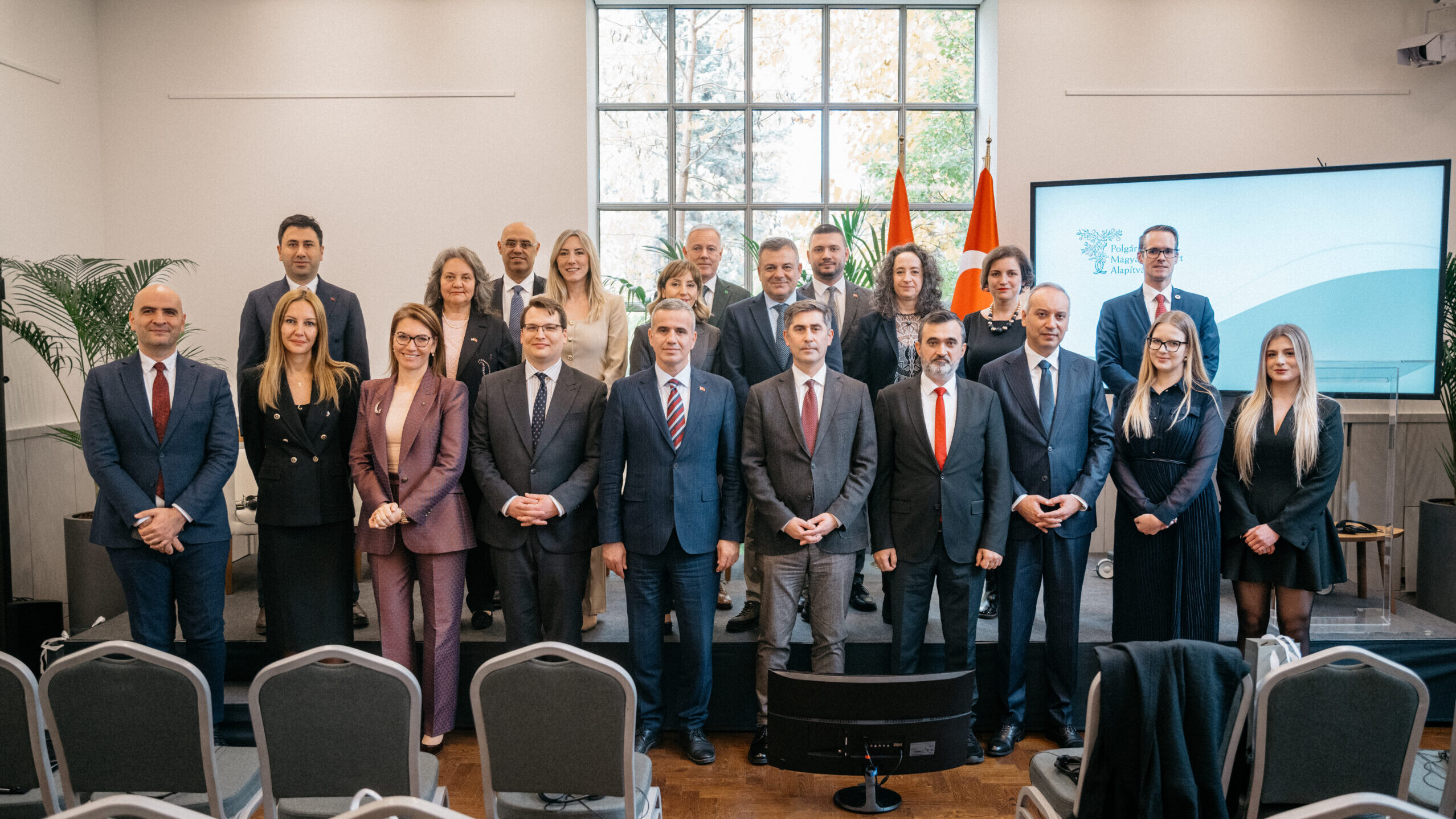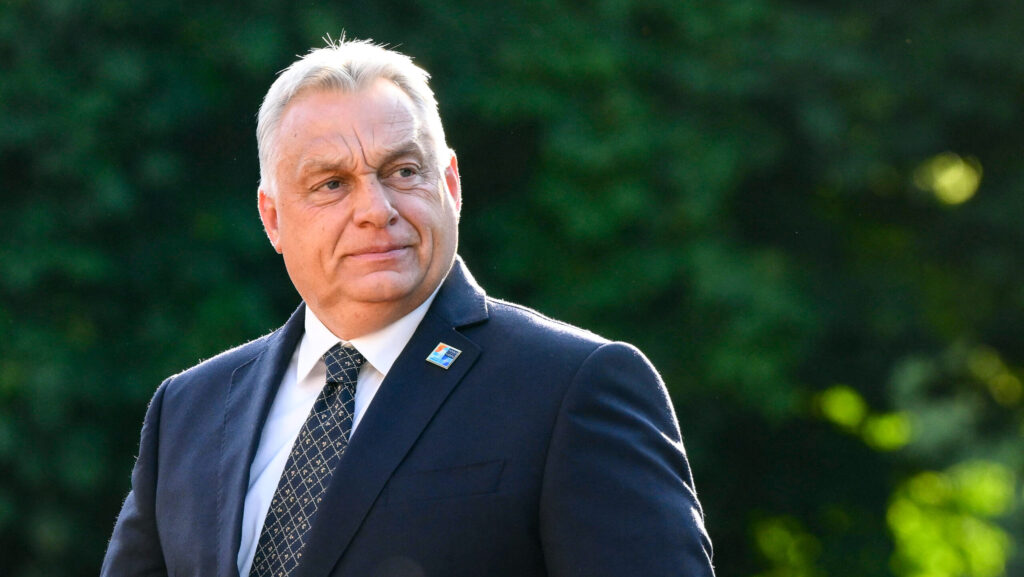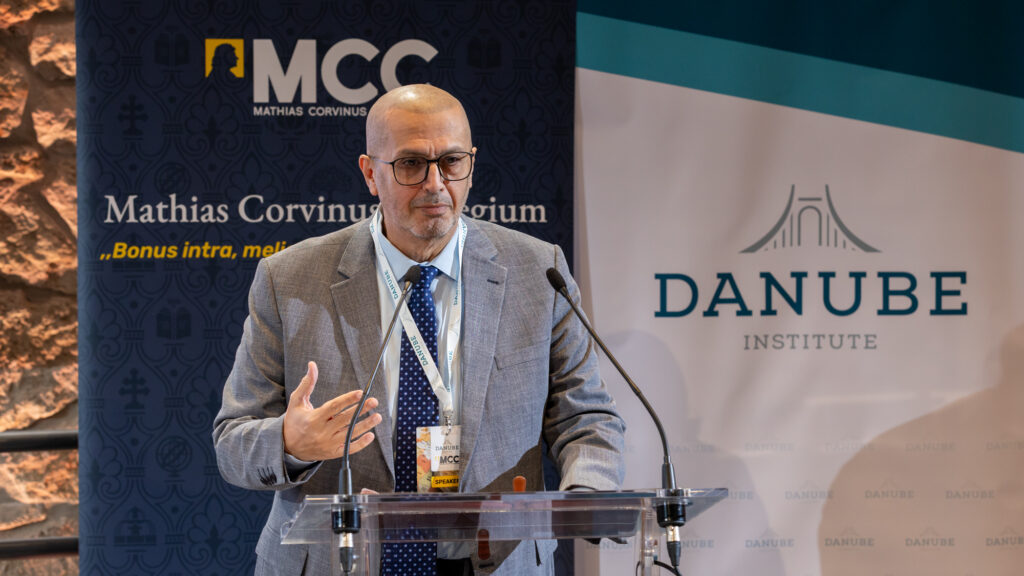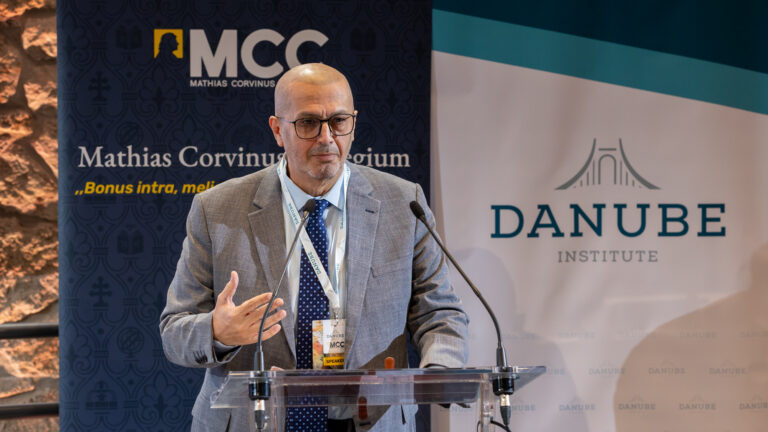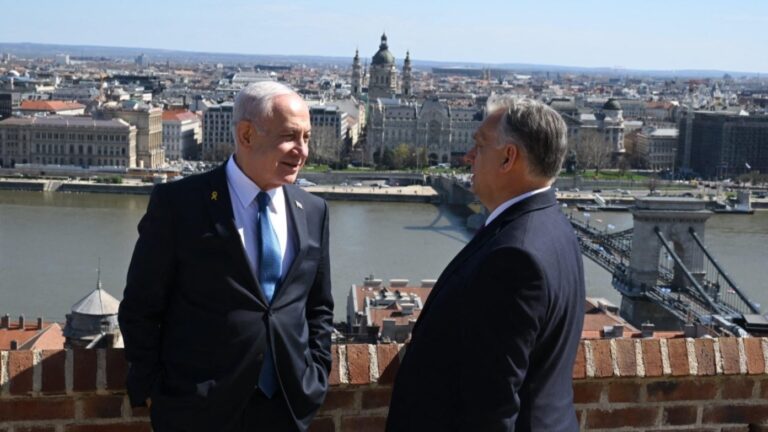Hungarian–Turkish relations were celebrated at a distinguished conference organized by the Foundation for a Civic Hungary on Tuesday in Budapest, with high-level official guests such as State Secretary for Security Policy and Energy at the Ministry of Foreign Affairs and Trade Péter Sztáray and Turkish Ambassador to Budapest Gülşen Karanis Ekşioğlu. The conference focused on the strategic partnership between Hungary and Türkiye and also touched upon media cooperation in the age of technological development and AI.
Hosted as part of the ‘Media Bridges’ project, the event brought together senior officials, leading analysts, and media professionals from both countries to deepen dialogue on geopolitics, communication, and technological change. The conference builds on the expanding strategic partnership between Hungary and Türkiye, elevated to an ‘enhanced strategic partnership’ in December 2023.
In her opening remarks, Ambassador Gülşen Karanis Ekşioğlu underlined that the Media Bridges project is one of the visible outcomes of the 17 bilateral agreements signed under the upgraded partnership. She stressed that media cooperation today is about more than information exchange—it is about creating a long-term, trust-based professional dialogue grounded in credibility and technological capability in an evolving global media environment.
She recalled that 2024 was marked as the Hungarian–Turkish Cultural Year, while 2025 is the Year of Science and Innovation—a reflection of both the historic depth and forward-looking nature of bilateral relations. Disinformation, the Ambassador noted, has become a hybrid threat that crosses borders, making factual reporting and credible communication key pillars of democratic resilience. She highlighted longstanding cooperation among national media institutions, including Anadolu Agency and MTI, and TRT with MTVA, as exemplary forms of media diplomacy grounded in ethics and trust.
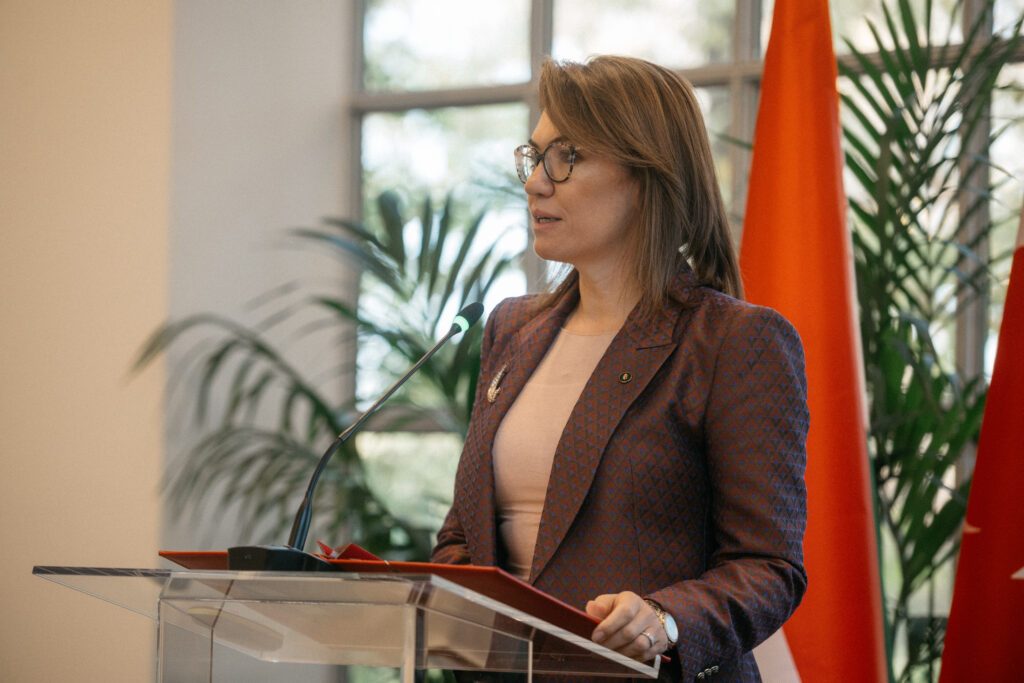
The Ambassador also addressed rapid technological changes driven by AI, big data, and algorithms. The critical question, she argued, is not technology itself but its ethical and responsible use—and this makes the trust-based Hungarian–Turkish media partnership especially valuable.
Ferhat Pirinçci, Deputy Director of Communications at the Presidency of Türkiye, also addressed participants. He emphasized that the Media Bridges programme reflects centuries of shared historical and cultural ties, from Gül Baba to Bartók Béla. Pirinçci stressed that combating disinformation is a shared international responsibility: ‘The truth cannot be defended by a single country alone.’ Türkiye’s institutionalized efforts within the Presidential Directorate of Communications, he said, complement Hungary’s own commitment to transparent and credible communication.
In the first panel, titled ‘The Future of Media: Trust, Reality, Technology’, Boris Kálnoky, Head of the School of Media at Mathias Corvinus Collegium (MCC), argued that despite technological shifts, the fundamental mission of journalism remains unchanged. Journalist and editor István Tallai reflected on the divergence between objective and subjective realities in modern news consumption, warning that regulation is essential to preserve public trust in an algorithm-driven environment.
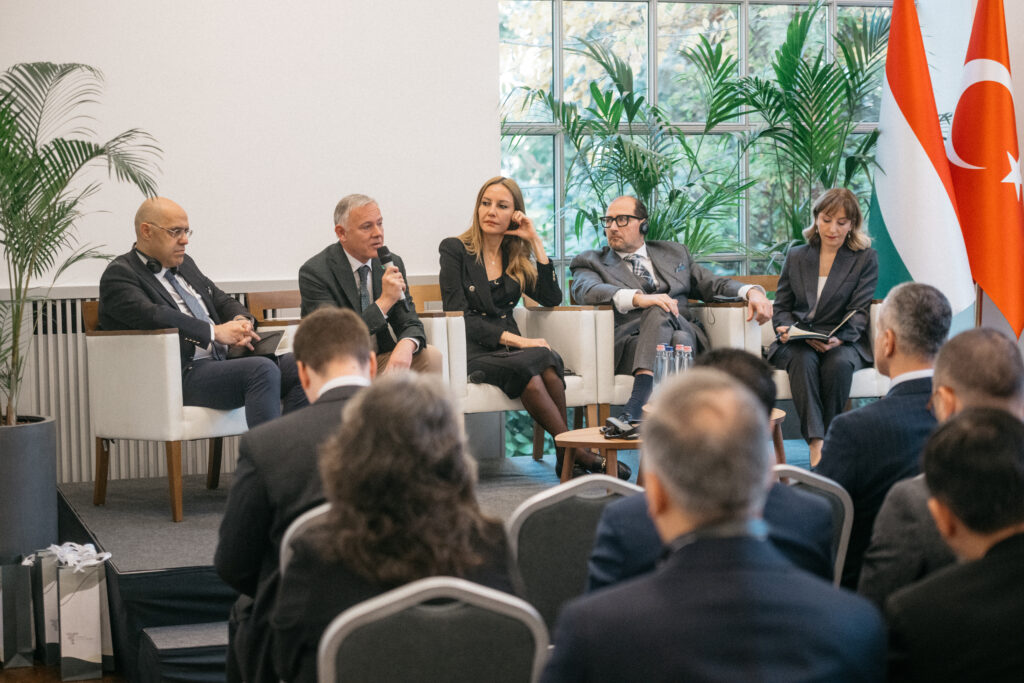
The second panel, moderated by Eurasia Magazine Deputy Editor-in-Chief Mariann Őry, examined the broader geopolitical dimension of Hungarian–Turkish cooperation.
Kinga Kenyeres, Chief Executive Officer of Századvég Konjunktúrakutató Zrt, described Hungary as a country that ‘connects rather than divides’, emphasizing the importance of building Eastern partnerships alongside EU and NATO obligations. She presented key findings from Századvég’s long-term ‘Europe Project’, which tracks European public opinion. According to the data, majorities across the EU support key Hungarian foreign policy positions, such as rejecting geopolitical bloc formation, prioritizing energy security, and tightening migration policy. Budapest and Istanbul, Kenyeres noted, have become two of Europe’s most credible venues for potential peace negotiations.
Professor Melek Çolak of Muğla Sıtkı Koçman University, Director of the university’s Turkish–Hungarian Research Institute, placed today’s cooperation within a long historical arc, from shared cultural roots and medieval correspondences to Atatürk’s establishment of a Hungarology Department in Ankara. She highlighted the expansion of bilateral research networks, including the Turkish–Hungarian Research Centre, and noted the strong Hungarian audience for Turkish cultural products such as television series, which strengthen people-to-people connections.
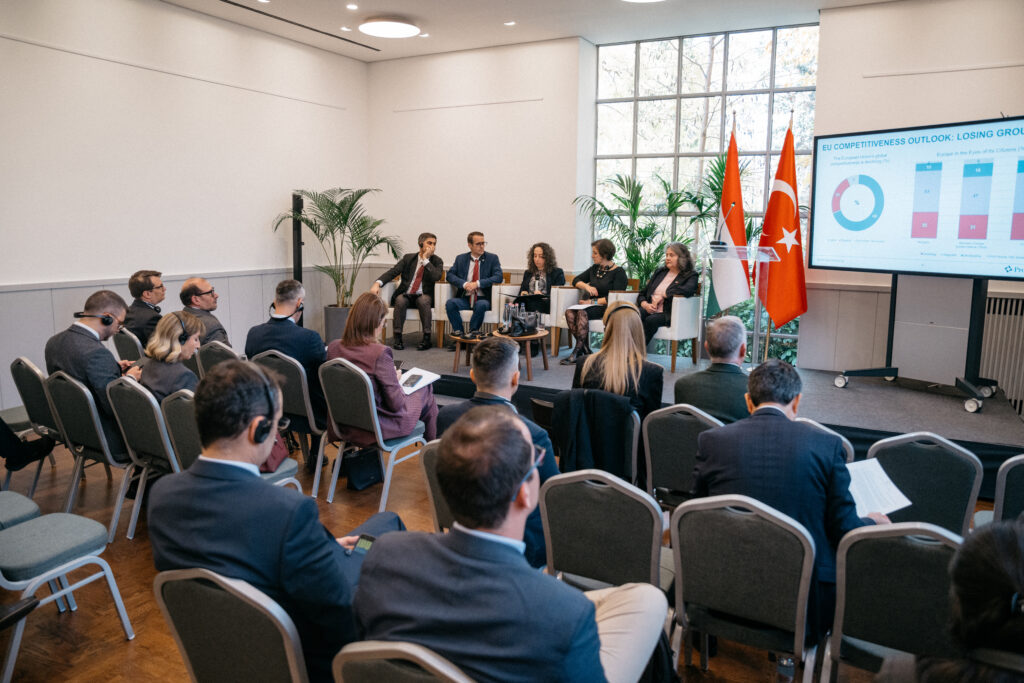
Levente Horváth, Director of the Eurasia Center at John von Neumann University and former Consul General of Hungary in Shanghai, analysed Hungary’s ‘Eastern Opening’ policy launched in 2010. He noted that while only 17–18 per cent of Hungary’s FDI came from Asia a decade ago, the figure now exceeds 35 per cent, with Türkiye playing an increasingly significant role. He highlighted new export-credit facilities, the record USD 5.2 billion bilateral trade volume in 2024, rapidly expanding educational exchanges, and growing cooperation in green technology and innovation as part of the 2025 Year of Science and Innovation.
The panel also featured Murat Yeşiltaş, Security and Foreign Policy Analyst at the Presidency of Türkiye and Senior Director at the SETA Foundation. He argued that the fragmented global order makes the strengthening of the Hungarian–Turkish strategic partnership more urgent. With Türkiye facing instability in its neighbourhood and Hungary exposed to geopolitical pressure from the war in Ukraine, both countries have a shared interest in building a new, stable security architecture. Defence industrial cooperation—including joint production—offers major untapped potential, he added.
Throughout the day, speakers returned to a common message: in an era of disinformation, geopolitical uncertainty, and accelerating technological change, Hungary and Türkiye increasingly rely on a partnership built on trust, mutual respect, and a shared commitment to stability—across media, diplomacy, culture, science, innovation, and security.
Related articles:

